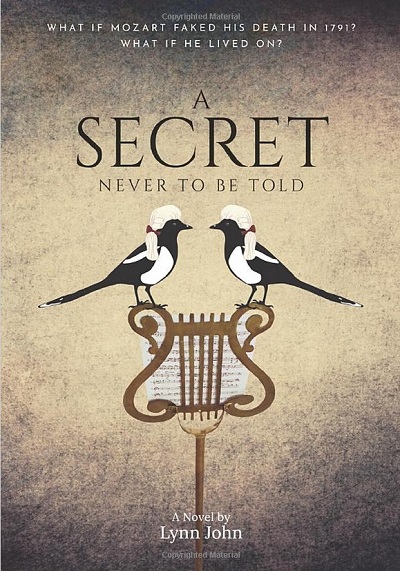Is there anyone who doesn’t love a good conspiracy theory? There aren’t that many connected with music, although for years there were theories that Jim Morrison did not actually die in 1971 like people thought but was instead alive in Paris. That was propagated due to the lack of autopsy or public funeral, but what if there was a huge coverup in classical music regarding one of the most influential composers of all time? Welsh opera singer, Lynn John, was performing in Opera New Zealand’s production of Verdi’s ‘Il Trovatore’, conducted by Eliano Mattiozzi, an Italian living in New Zealand. After a rehearsal, Eliano asked Lynn, “What would you say if I told you Mozart didn’t die on December 5, 1791? That he faked his death and lived on?” Lynn replied, “I can think of a number of reasons why Mozart may have faked his death… his debts, the Freemasons, his affairs, his wife… but if he’d lived on, he wouldn’t have kept quiet. He would have composed music.” Then came the shock response: “He did, but through someone else – Gioacchino Rossini.”
The book commences with Mozart and his mistress Magdalena Hofdemel placing a body in his coffin, and then started a life of subterfuge and secrecy. Of course, when one has been a musical prodigy then it is impossible to just stop writing, and one day he introduced himself to Rossini as Maestro, and the book then follows their times together until Maestro dies. It is fast-paced, and although this style of music and period is not exactly something I am massively interested in I found it incredibly compelling. Give John’s knowledge of opera and his love of music he has put in interesting details which provide solid background and context but never falls down the rabbit hole of explaining too much but instead leaves it to the reader to continue to the next page or dive off for more information if they wish. I deliberately did not undertake research to see if the facts and people mentioned within this actually existed, as that would have spoiled what was a fascinating tale, apart from one. This is that between his birth in 1792 and 1829 he wrote 39 operas, including 34 in just 14 years, an incredible output and would it be possible for just one man to undertake that? If Mozart had died in 1829, he would have been 73, so it is possible he would have known Rossini if he had lived, but the strange (and still unexplained) thing is that from 1829 until he died in 1868, he never wrote another opera. Was it because he was fed up with writing so many in such a short period, was it because he had become wealthy, or was it because his Maestro had died, and he could not face doing it alone?
Whatever the truth, Lynn John has pulled together a wonderful tale which is certainly fascinating and enjoyable throughout.









